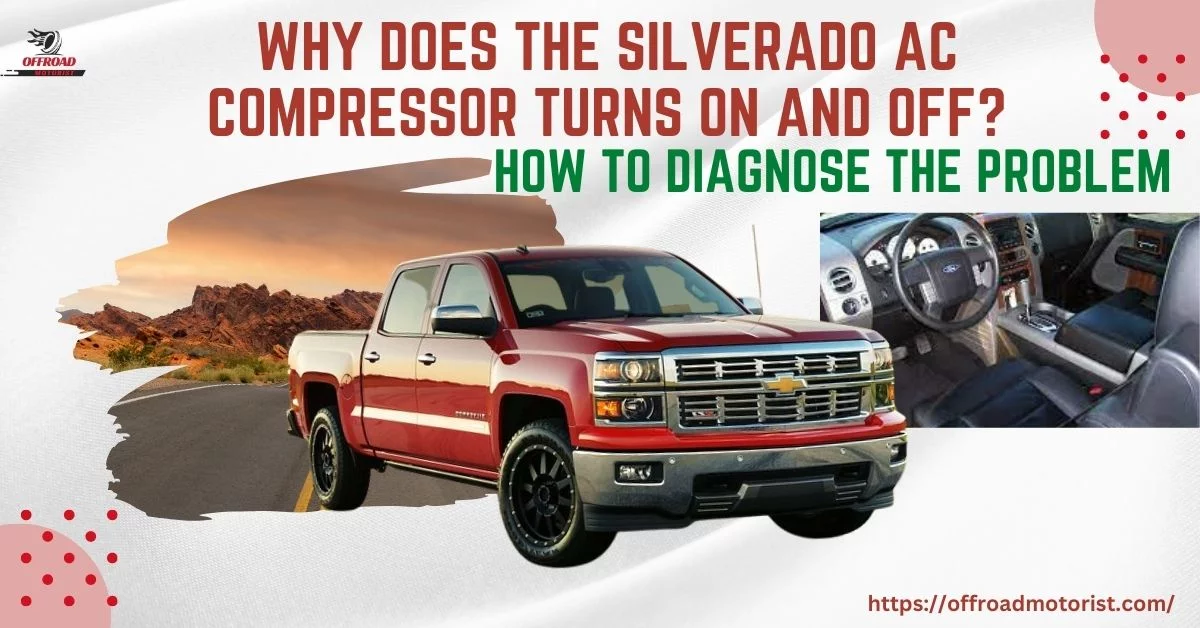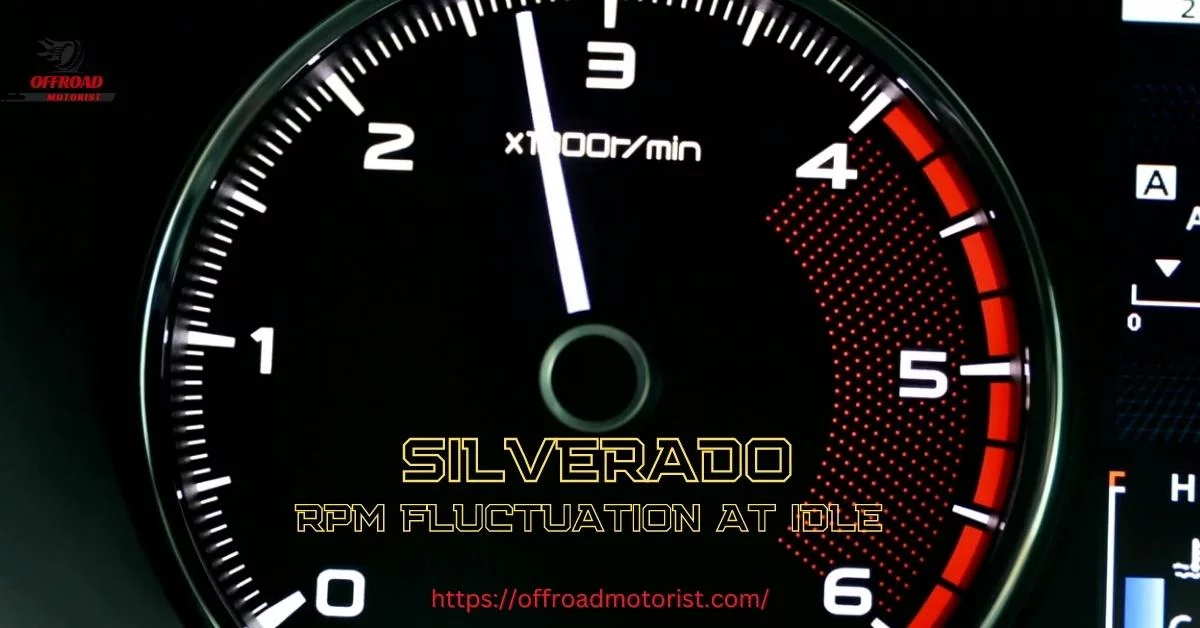Chevy Truck Hesitates When Accelerating [Causes and Solutions]
If you own a Chevy truck, you know the importance of having a vehicle that runs smoothly and reliably. However, if you’ve noticed your truck hesitating when you accelerate, it can be a frustrating and concerning problem.
Acceleration hesitation can be caused by various issues, ranging from minor to more severe problems. Ignoring the issue can result in reduced performance, decreased fuel efficiency, and potential safety hazards.
Diagnosing and fixing the problem as soon as possible is essential. In this post, we’ll explore why your Chevy truck hesitates when accelerating and provide a comprehensive guide to diagnosing and fixing the problem. So let’s get started.
Common Causes of Acceleration Hesitation in Chevy Trucks
Acceleration hesitation is a common problem experienced by many Chevy truck owners. It occurs when the engine is slow to respond or fails to accelerate smoothly when the gas pedal is pressed.
Various factors, including fuel, ignition, air intake, and transmission problems, can cause this issue.
I. Fuel System Issues
Problems with the fuel system can cause acceleration hesitation in Chevy trucks. A clogged fuel filter can prevent fuel from reaching the engine, resulting in a lack of power when accelerating.
Low fuel pressure can also cause acceleration hesitation, as the engine may not receive enough fuel to operate at optimal levels. Faulty fuel injectors can also contribute to acceleration hesitation by delivering insufficient power to the engine.
II. Spark Plug Problems
Issues with the spark plugs or ignition system can cause acceleration hesitation in Chevy trucks. Worn or dirty spark plugs can cause misfires, leading to a lack of power when accelerating.
Damaged ignition coils can also cause misfires, leading to acceleration hesitation.
III. Air Intake System Issues
The air intake system is responsible for delivering air to the engine, and issues with this system can cause acceleration hesitation. A dirty or clogged air filter can restrict airflow to the engine, leading to a lack of power when accelerating.
A malfunctioning mass airflow sensor can cause acceleration hesitation by delivering incorrect readings to the engine’s control module. Air intake system issues can result in an improper air/fuel mixture and poor engine performance.
IV. Transmission Problems
Transmission problems can also cause acceleration hesitation in Chevy trucks. A slipping or failing transmission can cause the engine to lose power when accelerating.
Various issues, such as low transmission fluid levels, worn or damaged gears, or a failing torque converter, can cause this.
Note: Diagnosing the root cause of acceleration hesitation in your Chevy truck is essential to fixing the problem effectively. By knowing the most common reasons, you can narrow down the problems and take the steps you need to fix your truck.
Steps to Diagnose Acceleration Hesitation in Your Chevy Truck
If you’re experiencing acceleration hesitation in your Chevy truck, it’s crucial to accurately diagnose the root cause of the problem before attempting to fix it.
Here are the steps to follow for diagnosing acceleration hesitation in your Chevy truck:
01. Check the OBD-II Codes
The OBD-II system is designed to monitor and diagnose issues with your vehicle. Using an OBD-II scanner, you can retrieve any diagnostic trouble codes (DTCs) the system has logged.
These codes can provide insight into the possible causes of acceleration hesitation, such as a misfiring cylinder or a malfunctioning sensor.
02. Perform a Visual Inspection
A visual inspection of the engine compartment can reveal obvious signs of issues causing acceleration hesitation. Look for damaged or worn components, such as cracked hoses or corroded connectors.
Check the condition of the air filter and the mass airflow sensor, and inspect the spark plugs for signs of wear or damage.
03. Conduct a Fuel Pressure Test
A fuel pressure test can help determine if issues with the fuel system are causing acceleration hesitation. This test involves attaching a pressure gauge to the fuel rail and measuring the pressure while the engine runs. Low fuel pressure can indicate a clogged fuel filter or a failing fuel pump.
04. Test the Ignition System
Issues with the ignition system can cause misfires and acceleration hesitation. To test the ignition system, use a spark tester to check each plug for a strong and consistent spark.
Inspect the ignition coils for signs of damage, and check the spark plug wires for wear or damage.
05. Check the Transmission
A slipping or failing transmission can cause acceleration hesitation. Check the transmission fluid level and condition, and look for signs of wear or damage to the gears or the torque converter.
Note: By following these steps, you can diagnose the root cause of acceleration hesitation in your Chevy truck and take the steps needed to fix it.
A Step-by-Step Guide to Fixing Acceleration Hesitation in Your Chevy Truck
Fixing acceleration hesitation in your Chevy truck can be a challenging and frustrating problem to solve, but it’s essential to address the issue to ensure optimal performance and safety.
Here’s a more detailed step-by-step guide on how to fix acceleration hesitation in your Chevy truck:
Step 01: Check and Clean or Replace the Air Filter
A dirty or clogged air filter can restrict airflow to the engine, leading to acceleration hesitation. Check the condition of the air filter and clean it or replace it if necessary.
Cleaning or replacing the air filter is a simple and cost-effective way to improve engine performance and fuel efficiency.
Step 02: Inspect and Clean the Mass Airflow Sensor
The mass airflow sensor (MAF) measures the air entering the engine and helps ensure the correct air/fuel mixture. A dirty or malfunctioning MAF can cause acceleration hesitation.
Inspect the MAF and clean it using a specialized MAF cleaner. Cleaning the mass airflow sensors will improve the accuracy of the air/fuel mixture and optimize engine performance.
Step 03: Check and Replace the Fuel Filter and Fuel Pump
A clogged fuel filter or a failing fuel pump can restrict fuel flow and cause acceleration hesitation. Check the fuel filter and fuel pump and replace them if necessary.
If you notice a lack of power or engine performance issues, the fuel system could be the root cause of the problem.
Step 04: Check and Replace the Spark Plugs and Ignition Coils
Worn or dirty spark plugs or damaged ignition coils can cause misfires and acceleration hesitation. Check the condition of the spark plugs and ignition coils and replace them if necessary.
For optimum engine performance and fuel economy, spark plugs and ignition coils must be changed frequently.
Step 05: Check and Service the Transmission
Transmission problems can cause acceleration hesitation. Check the transmission fluid level and condition, and have the transmission serviced or repaired if necessary.
A slipping or failing transmission can cause the engine to lose power when accelerating. Regular transmission service can prevent transmission problems and ensure optimal performance.
Step 06: Check and Service the Throttle Body
The throttle body controls the amount of air that enters the engine. A dirty or malfunctioning throttle body can cause acceleration hesitation.
Check the throttle body and clean it using a specialized throttle body cleaner. This will improve airflow and optimize engine performance.
By following these steps, you can fix acceleration hesitation in your Chevy truck and restore its performance. It’s essential to address the root cause of the problem to ensure that it doesn’t persist.
Note: If you need help fixing the problem or the necessary tools or experience, consult a qualified mechanic.
FAQs on Chevy Truck Hesitates When Accelerating
In this session, we’ll provide the necessary information and knowledge to get your Chevy truck running smoothly again.
What causes a Silverado to jerk when shifting?
A Silverado can jerk when shifting due to issues with the transmission, such as low transmission fluid, a failing torque converter, worn or damaged gears, or a malfunctioning transmission control module. Other possible causes include a faulty throttle position sensor or a clogged fuel filter.
How can I diagnose a Silverado jerking when shifting?
To diagnose a Silverado jerking when shifting, start by checking the transmission fluid level and condition, the throttle position sensor, conducting a fuel pressure test, and inspecting the transmission for signs of wear or damage.
What causes the Silverado’s RPM to jump while driving?
Silverado RPM can jump while driving due to issues with the fuel system, ignition system, transmission, or airflow system. Common causes include a clogged fuel filter, low fuel pressure, faulty spark plugs or ignition coils, a dirty or clogged air filter, a malfunctioning mass airflow sensor, or a slipping or failing transmission.
Can I fix my Silverado’s RPM jumping while driving myself?
Depending on the root cause of the problem, you can fix Silverado RPM jumping while driving yourself. However, if you need help with how to diagnose or fix the problem or need the necessary tools or experience, consult a qualified mechanic for assistance.
Final Thoughts on Chevy Truck Hesitates When Accelerating
Various factors, including fuel, ignition, air intake, and transmission issues, can cause acceleration hesitation in your Chevy truck.
To get the best performance and safety while driving, it’s important to fix the problem at its source. Don’t be afraid to find out why your Chevy truck hesitates to speed up and fix it if you want to keep it running smoothly on the road.


![Chevy Transfer Case Interchange Chart [Everything you need to Know] chevy transfer case interchange chart](https://offroadmotorist.com/wp-content/uploads/2023/03/chevy-transfer-case-interchange-chart-150x150.jpg)



![Why Your Chevy Tahoe Cranks but Wont Start [Solving the Mystery] chevy tahoe cranks but wont start](https://offroadmotorist.com/wp-content/uploads/2023/02/chevy-tahoe-cranks-but-wont-start-150x150.jpg)





